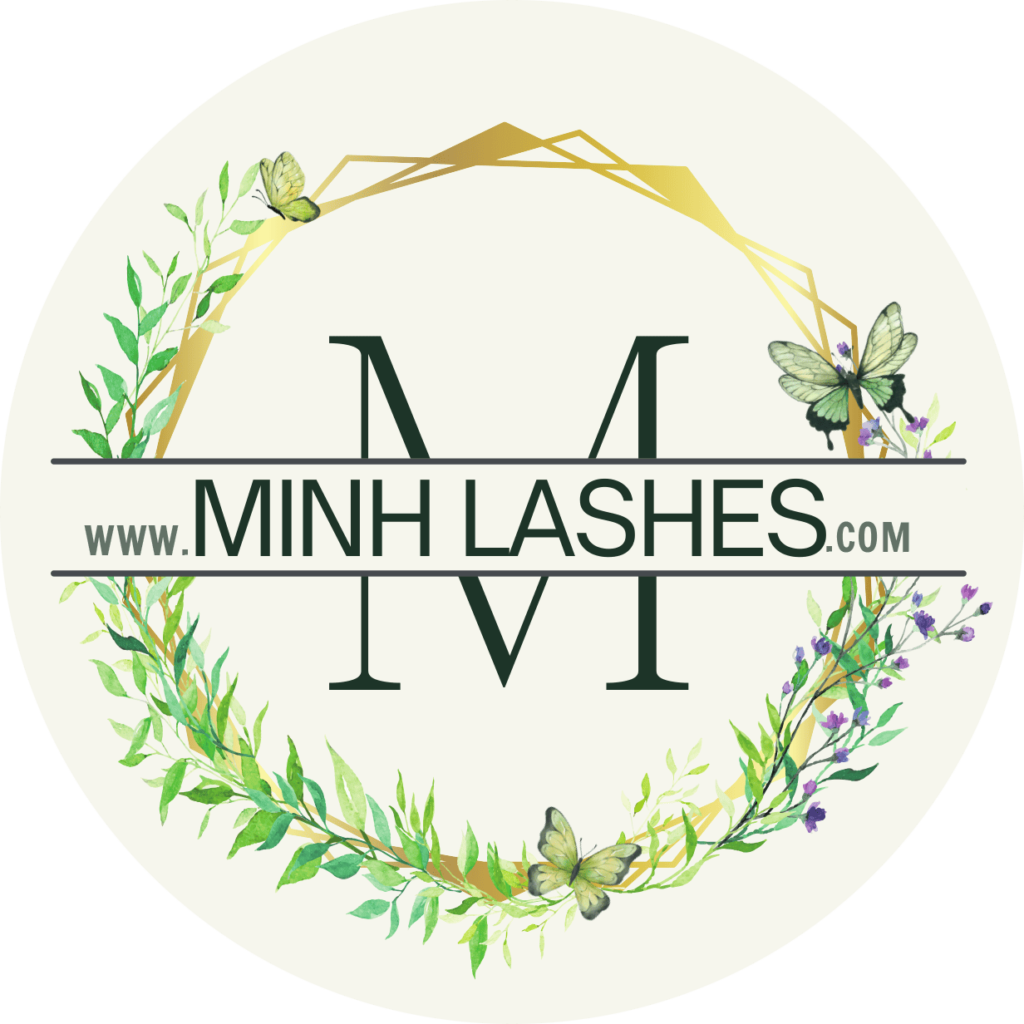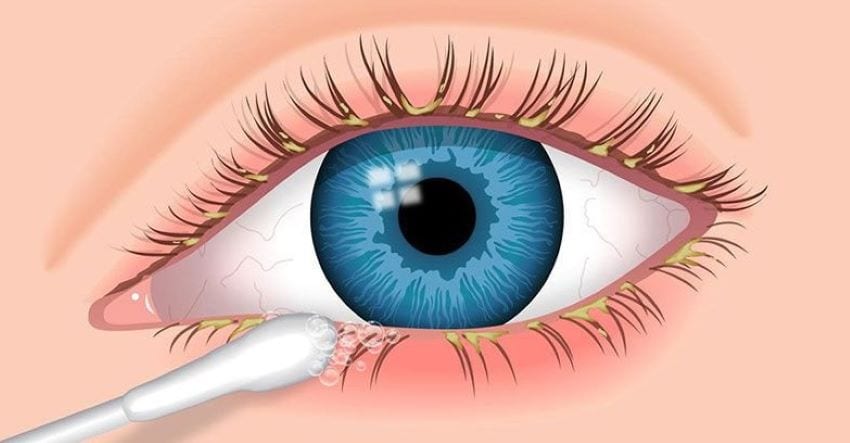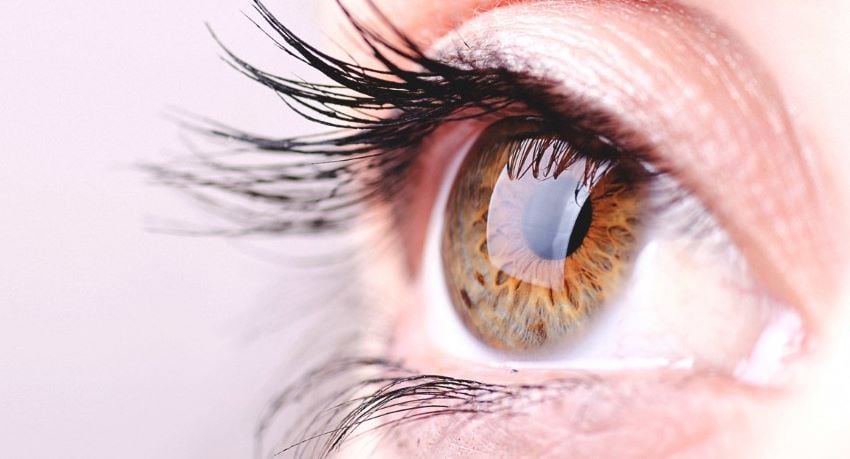No products in the cart.
Causes Of Itchy Eyelashes And Home Remedies
Itchy eyelashes are a common phenomenon in the eyes. There are many causes for itchy eyelashes. It can be a sign of a disease like conjunctivitis, blepharitis, etc. that is caused by an allergy or an infection. Let’s find out what causes itchy eyelashes and how to treat them at home with Minh Lashes!

Causes of itchy eyelashes
There are many causes of itchy eyelashes, namely:
Allergy
An allergic reaction can cause eyelid dermatitis. This condition occurs in one or both eyes and has common symptoms such as:
- Itchy eyelids and eyelashes.
- Red.
- Scaly skin.
- Swelling.
It can be caused by seasonal or year-round allergens. Seasonal allergens include pollen and ragweed. Year-round allergens include dust, dust mites, and mold. In response to these irritants, your body makes histamine in the eye tissues, which causes them to itch, swell, and turn red. You may also experience itchy eyelashes from touching your eyes with an allergen-containing hand.
Allergies cause a lot of discomfort, not only in symptoms but also in diagnosis and treatment. Because it is quite difficult to know which products you are allergic to.
Allergic conjunctivitis
Allergic conjunctivitis is a common disease of the conjunctiva. It is caused by inflammatory reactions to allergens, which are substances that make the body’s immune system work harder and release chemicals that make the eyes itch, swell, and dilate. circuit…).
Allergic conjunctivitis does not pose much of a threat to health. But if it is not detected and treated promptly, it can lead to serious complications: corneal ulcers and vision loss.
Blepharitis
This is a chronic condition that affects the eyelash area in both eyes. There are two types of blepharitis:
- Anterior blepharitis: it affects the outer edge of the eyelid where the eyelashes grow.
- Posterior blepharitis: affects the inner edge of the eyelid where the eyeball makes contact with the eyelid
There are many causes of blepharitis, such as:
- Infection.
- Lice or eyelash lice
- Allergy.
- Seborrheic dermatitis.
- Oil glands are blocked.
This condition causes itching, burning, and swelling of the eyelid area where the eyelashes grow. Sometimes it also causes your eyelashes to fall out or grow in an oblique direction.
Chlamydia disease
Chalazion is a hard bump that appears suddenly in the eyelashes. They usually resemble pimples and range in size from small to large. Chalazion is caused by an infection in the eyelash follicle, which often causes itching and pain.
Dry eye syndrome
This is a condition in which your eyes don’t produce enough tears to lubricate them, leading to itchy eyes. Because the body isn’t making enough water, foreign substances build up in the eyes, which can cause irritation, infection, and more itching.
Phthiriasis palpebrarum
This type of lice infection doesn’t happen very often and usually only affects the eyelashes or other parts of the body. When it gets into the area around the eyelashes, it causes a lot of itching, but it is often mistaken for blepharitis.
Swallow eyes
Swallow eye, also called conjunctivitis, is an eye infection that is contagious. It can happen to one or both eyes, making the area under the eyelids itch, hurt, swell, and look red.

Other symptoms of itchy eyelashes
Besides the typical symptoms associated with each cause, there are a number of other symptoms that can also be associated with itchy eyelashes. Consists of:
- Sudden decrease or loss of vision.
- Weep.
- Eyesore.
- Oily skin on eyelids.
- Pain or burning sensation in or around the eyes.
- Red skin around the eyes.
- Flaking or peeling skin.
- Swelling of the eyelids and under the eye area.
When should you see a doctor?
If your eyelash itching doesn’t go away or gets worse, you should see a specialist. In particular, you should see your doctor right away if you notice the following symptoms:
- Eye pain
- Blurry or loss of vision
- Oily, scaly skin on eyelids
- Red swelling
Before treating the itching, doctors will try to find out what is causing it by looking for an allergen or an infection. If eyelash itching is suspected to be caused by an allergen, your doctor will do an allergy test with a patch to see what you’re allergic to. If the doctor thinks you have infectious blepharitis, he or she will take a sample of your eyelid to test for bacteria, fungi, or allergens.

Home remedies for itchy eyelashes
Eye drops
Helps relieve itching caused by conjunctivitis or dry eye syndrome. This medication helps relieve itching caused by inflammation of the eyelid skin. But do not use it for too long or if the product has a strong effect because it will thin the skin of the eyelids.
Antihistamines
Some antihistamines can be used with eye drops to reduce the amount of histamine in the eye.
Keep clean
Keeping your eyelids clean is the best way to relieve itchy eyelashes. Do not use soap, especially when you have dermatitis. If you have blepharitis, massage your eyelids gently with a clean cloth to keep oil from building up in the glands on your eyelids. You can also try washing your eyelids with diluted baby shampoo.
Moisturizing
If you have eyelid dermatitis, certain moisturizers that don’t have a scent can help to soothe and condition your eyelids.
Apply warm or cool
This remedy is recommended for viral or bacterial conjunctivitis.

Prevention of itchy eyelashes
To prevent itchy eyelashes, you should note some of the following issues:
- Regularly clean blankets, pillows, towels, etc.
- Throw away old eye makeup.
- Do not share makeup with friends.
- If you wear contact lenses, let your eyes rest for a few days by wearing normal glasses. But if that’s not possible, then make sure to clean your contact lenses regularly.
- Keep the eyelid area and surrounding area clean.
- Do not rub or touch the eye area with dirty hands.
- Try to identify products that cause allergies to the eyelids and get rid of this product.
Here is information on the causes of itchy eyelashes and home remedies. If you have any questions, please consult your doctor directly. Follow Minh Lashes for more useful information.
Bài viết cùng chủ đề:
-
Как промо-акции и конкурсы удерживают фокус
-
Как ожидания воздействуют на впечатление
-
Каким образом ожидания влияют на ощущения
-
Из-за чего человек любят неожиданные обнаружения
-
Анализ главного ресурса казино и слотов
-
Казино и слоты с бонусами
-
Анализ платформы игорного заведения и её функционала
-
Анализ официального веб-сайта Вулкан 24 и гемблинговых слотов
-
Top Rated Baccarat Casino Game Review
-
The Ultimate Guide to Playing Slots Online
-
Лучшие онлайн казино без требования подтверждения личности: сыграйте втайне.
-
Психология предвкушения наслаждения
-
Optimierung des Bodybuildings: Der sichere und legale Einsatz von Steroiden
-
Ведущие казино платформы с акциями и безвозмездными раскрутками.
-
Безвозмездная игровка в виртуальное казино без регистрационного процесса: опции и лимиты





